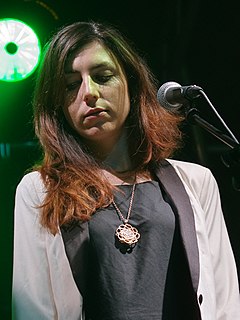A Quote by Jeffrey Rosen
But as I wrote the book [Louis D. Brandeis: American Prophet], I tried to write it as clearly and directly and passionately as possible just thinking of communicating to readers who might want to learn about this great thinker and be inspired by him as I was.
Related Quotes
Louis Brandeis really inspired me to write this book [Louis D. Brandeis: American Prophet]. It was a crazy deadline. The editor said I'd miss the hundredth anniversary unless I pumped the thing out in six months, because I'd been delaying and dilly dallying for so long. So he both inspired me to get up early and write.
Books are just dead words on paper and it is the readers who bring the stories alive. Previously, writers wrote a book and sent it out into the world. A couple of months after publication letters from readers might arrive. And, leaving aside the professional reviews, it is really the reader's opinions that the writer needs. They vote for a book - and a writer - with their hard earned cash every time they go into a bookstore (or online - that's my age showing!) and buy a book.
When I was in fourth grade... this wonderful teacher said you didn't have to write a book report, you could just talk about the book, you could do a drawing of the book, you could write a play inspired by the book, and that's what I did. I got to be so famous. I had to go around to every school and perform it. It was just so natural and fun.
Some writers are writing one great, big book and just taking all these different avenues towards it. They might seem on the outside to be different, but they're really not. And that's a different kind of mindset. I don't know why it is, but I just feel like I really want to escape myself as much as I can - myself as the artist, or as the writer, or as the thinker - with each new project, because one, it's just boredom, but also, I guess I just feel most comfortable starting a new book if I just feel a little in the dark about it.
Louis Brandeis beloved uncle, Lewis Dembitz, was an ardent abolitionist. His mother was an abolitionist in Kentucky at a time when Brandeis remembered hearing the shot from the confederate soldiers after the second battle of Bull Run. Amazing to think that he heard that and I studied with one of his last law clerks in college. And that encapsulates almost all of American history.
I wrote seven Myron Bolitar novels in a row, and I never want to write a Myron book where he just solves a crime. Every one of them I want to be personal, and I want him to grow and change. The problem with that is, it makes the series limited, you can't write a series where a guy is always going through some kind of crisis.
And he [Louis Brandeis] talks to his young acolyte, Horace Kallen, who wrote this beautiful book called Cultural Pluralism, and he comes to believe that by being better Jews, or better members of our ethnic group, we can be better Americans, because America is like an orchestra in which identity is defined by the diversity of perspectives that we bring to the table.
The tyranny of Harvard and Yale is another thing that transcends this problem of the set point. But what's so striking about [Louis] Brandeis is he had this vision of cultural pluralism that completely gave the lie to the idea that there was any inconsistency between being Jewish or being a woman or being African American and being fully American.






























